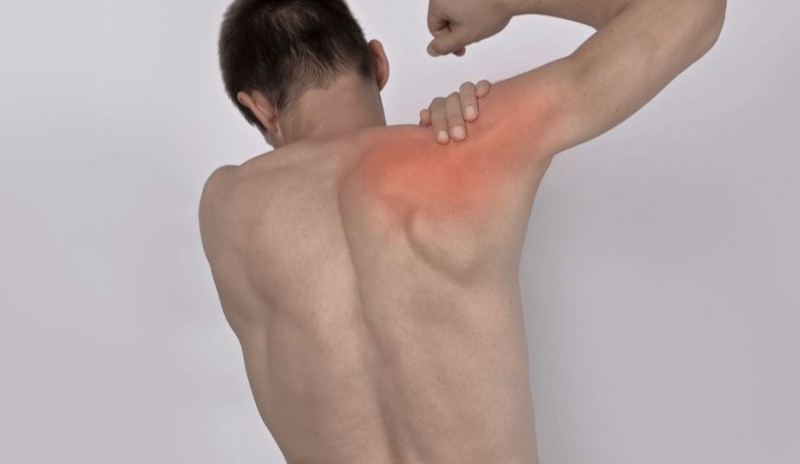
Tingling sensations in the nerves and stiffness in the muscles are common issues many people face, often due to poor blood circulation, lack of physical activity, or underlying health problems. These symptoms can affect your daily routine, making even simple tasks uncomfortable. If you’re experiencing these issues frequently, it’s important to address the root cause and adopt lifestyle changes or remedies that can bring relief. Here’s a detailed guide on how to manage and reduce nerve tingling and muscle stiffness.
Understanding the Causes:
Poor Blood Circulation:
When blood flow is restricted or doesn’t reach certain parts of the body efficiently, it can lead to tingling, numbness, and stiffness. Peripheral artery disease (PAD) is one such condition where the narrowing of arteries restricts blood flow, primarily affecting the legs.
Sedentary Lifestyle:
Long periods of sitting or inactivity lead to stiff muscles and poor circulation. Over time, this lack of movement can cause muscle tension and nerve-related issues.
Vitamin Deficiency:
Deficiency in essential vitamins, especially Vitamin D and B12, can lead to muscle cramps, weakness, and tingling sensations. These vitamins play a crucial role in maintaining nerve health and muscle function.
Nerve Compression or Damage:
Conditions like carpal tunnel syndrome, herniated discs, or pinched nerves can cause tingling and numbness. These are often due to repetitive motions, poor posture, or injuries.
Stress and Anxiety:
Mental stress can sometimes manifest physically, leading to muscle tightness and nerve sensations.
Effective Remedies and Lifestyle Changes:
Daily Exercise and Stretching:
Regular physical activity improves blood circulation, strengthens muscles, and reduces stiffness. Yoga, walking, and gentle stretching exercises can be particularly beneficial in relieving muscle tension and nerve discomfort.
Maintain Proper Hydration:
Drinking sufficient water is crucial for muscle function and overall health. Aim to drink at least 3-4 liters of water daily to keep muscles hydrated and reduce cramping.
Diet and Nutrition:
Include Vitamin D and B12: These vitamins are essential for nerve health and muscle strength. Include foods like eggs, dairy, fish, and fortified cereals, or take supplements if needed.
Amla and Other Ayurvedic Herbs: Amla is known for its high Vitamin C content, which supports nerve health. Additionally, herbs like Ashwagandha, Giloy, and Guggal can help in improving circulation and reducing inflammation.
Massage and Warm Compresses:
Regular massages and using warm compresses can relieve muscle stiffness and improve blood flow to the affected areas. Essential oils like eucalyptus or lavender can enhance the effects.
Nerve Strengthening Techniques:
Incorporating Ayurvedic practices like consuming Giloy, Ashwagandha, and other nerve-tonic herbs can strengthen the nervous system and reduce tingling sensations.
Posture Correction:
Maintaining good posture while sitting or standing reduces the strain on your muscles and nerves, preventing compression and related discomfort.
Manage Stress and Anxiety:
Practices like meditation, deep breathing exercises, and mindfulness can help reduce stress, which in turn eases muscle tension and nerve issues.
Avoid Tight Clothing:
Wearing tight clothing can restrict blood flow and add pressure to nerves, worsening tingling and stiffness. Opt for comfortable and loose-fitting clothes.
Monitor Your Salt and Sugar Intake:
Excess salt and sugar can lead to water retention, which may cause muscle stiffness. Reducing these in your diet can alleviate some of the discomfort.
When to See a Doctor:
While the above remedies can be effective, persistent tingling and stiffness could be a sign of a more serious condition. Consult a healthcare provider if:
The symptoms are consistent and worsen over time.
You experience severe pain or weakness.
There are changes in skin color or temperature in the affected area.
The tingling or stiffness is accompanied by other symptoms like dizziness or difficulty breathing.
By adopting these remedies and making necessary lifestyle changes, you can significantly reduce tingling sensations and muscle stiffness. Start with small, consistent steps and gradually incorporate these habits into your routine for long-term relief and better health.
India Issues New Advisory on Mpox as Deadlier Strain Emerges
West Bengal Health Deptt Transfers Key Officials at RG Kar Medical College Amid Protests
Does Eating the Yellow Portion of an Egg Increase Cholesterol?